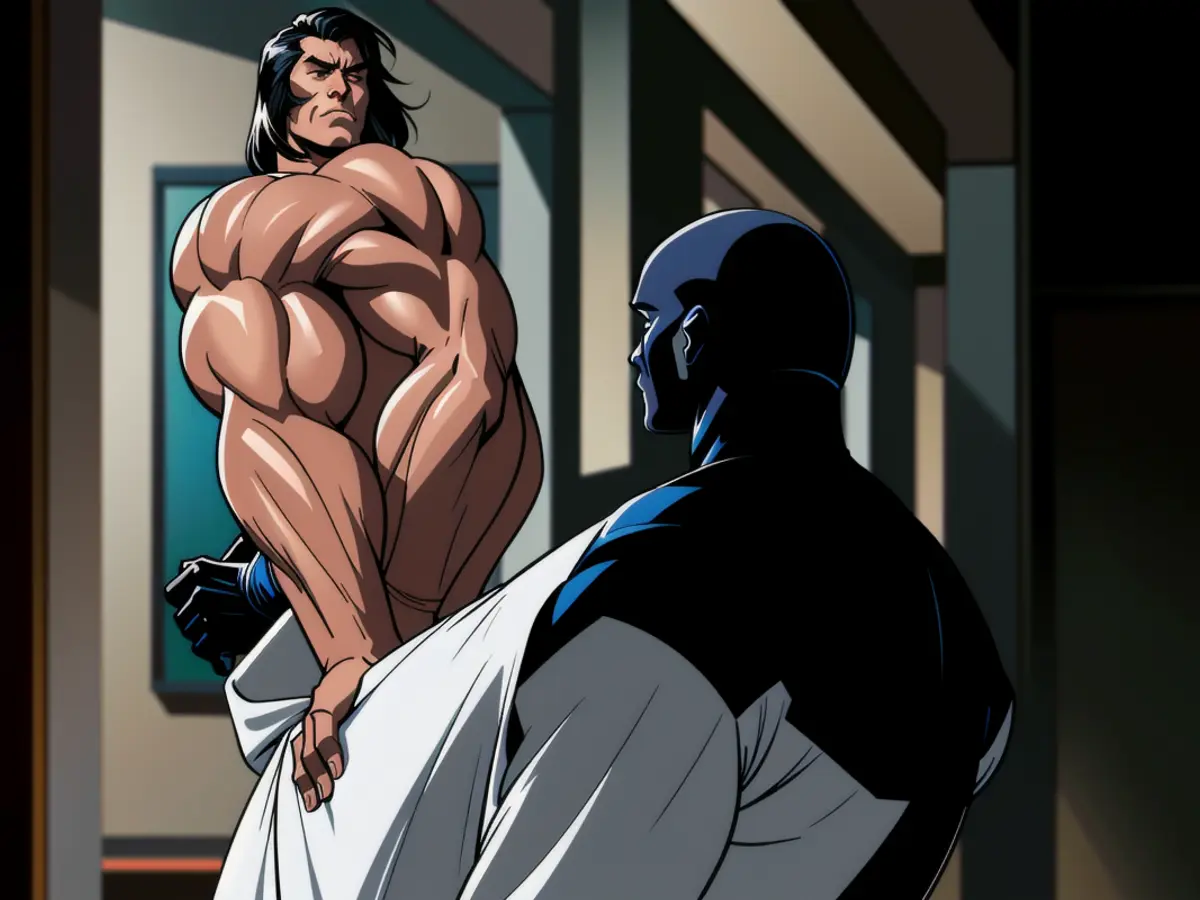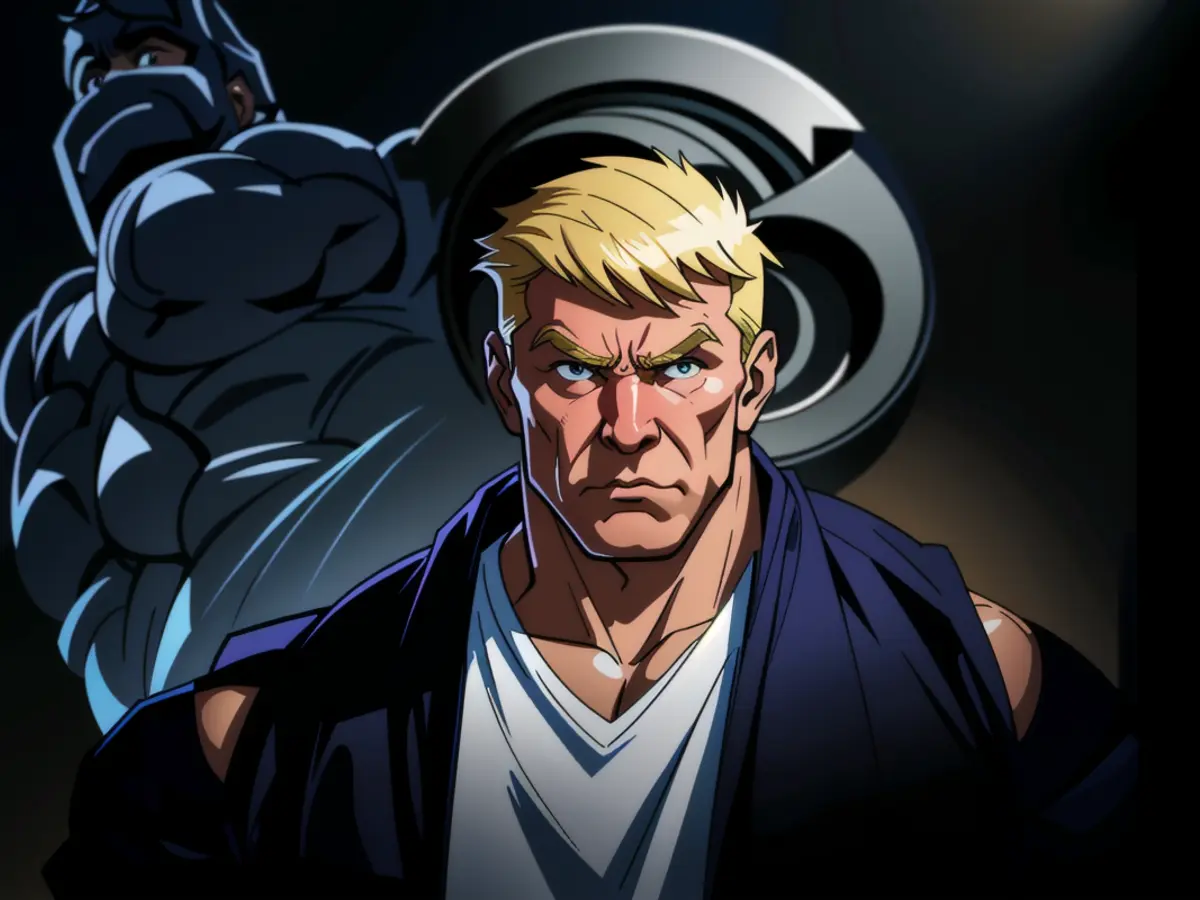Irreversible harm is imminent in this case.
Article:
Historian Tooze Warns: Trump's New Era Could Fracture American Society
US President Joe Biden aims to re-establish the USA's hegemonic leadership, asserts economic historian Adam Tooze in an interview with ntv.de. However, Tooze foresees a tumultuous future for American society as Trump attempts to seize power once more, and the resulting devastation could be permanent.
Foreign Policy Magazine branded Tooze one of the most influential global thinkers of the decade. Alongside his role as Director of the European Institute at Columbia University in New York, he recently co-founded the economics magazine "Surplus," which serves as an alternative voice to the economically liberal mainstream. In the interview with ntv.de, Tooze discusses Trump 2.0, the growing influence of tech oligarchs, and the potential role of Germany as a veto player in Europe.
ntv.de: Professor Tooze, you believe that Trump's political resurgence is a consequence of the elites' weakness in the USA. What are the underlying systemic factors causing this weakness?
Adam Tooze: Any historical assessment at this stage would be premature. However, there have been transformations in the Republican Party that may have begun as early as the 1990s. Remember Newt Gingrich's intense attacks on the Clinton administration at the time? [Gingrich, a Republican, served as Speaker of the House and played a crucial role in the ultimately unsuccessful impeachment proceedings against President Bill Clinton.] The Republicans continued this with their largely radicalized House majority. This coalition, anchored in the Southern states, represented nationalists.
Roots of the Republican Resurgence:
The shift in American politics began during the Wall Street crisis in the fall of 2008. While John McCain chosen Sarah Palin as his running mate, then-Republican President George W. Bush struggled to find support for a Wall Street bailout in Congress, despite the stability of the American economy hanging in the balance. This marked the moment when the weight of entrepreneurial interests shifted to the center, to the Democrats. This coalition, led by Chuck Schumer and Nancy Pelosi, continued to wield influence during the Covid packages under Trump.
The Republicans Under Trump's Reign:
Since Trump has dominated the party, the Republicans have pursued a disjointed and emotionally manipulative policy, transforming politics into an expression of an inner crisis, a feeling of discord, compensation for a sense of powerlessness. They provide deregulation and tax cuts for the wealthy, and serve the corrupt interests of the Trump clique.
Trump's Voter Base:
Trump's support is primarily among the somewhat better-off, not the impoverished American underclass. The poor, who are predominantly Black, tend to vote Democratic, if at all. Instead, it's the insecure lower-middle class that finds solace in this populism. Trump offers comfort to white men without higher education.
The New Era of American Politics:
Biden strives to restore the classic hegemonic leadership claim, while Trump aims to demonstrate strength above all else. Tooze cautions against overestimating Germany's potential influence in Europe, as Berlin's primary role has been through blocking measures. However, it is important that "Berlin no longer says no."
The Rise of Tech Oligarchs:
Looking back, the development of Big Tech is rooted in state interests. Consider the history of the military-industrial complex in California. Simultaneously, AI displays autonomous momentum that cannot be reduced to political demands, yet holds the potential to become a significant historic factor.
Under Obama's leadership, tech firms were democratic. The basic tendency of California-based internet firms, which are linked to capitalism and large profits, had a liberal inclination until recently. However, the divide between tech companies and Trump in his first term is dissolving. Actors like Mark Zuckerberg and Jeff Bezos, who lack personal political allegiance to Trump, are starting to sense the direction of the wind. Elon Musk presents a different case.
The Role of "Checks and Balances":
Some Democrats question the effectiveness of the checks and balances in the US system, with Musk leading the way. Early evidence suggests that the basic assumption of the Democrats is that the Trump crew, with Musk at the helm, is steering towards a catastrophe. They seem to rely on real checks and balances, not legal ones, found in the markets. Tesla's stock prices have plummeted, indicating investor disapproval. The bond market, where it's about the value of American state bonds, also exerts influence. Furthermore, the Democrats anticipate a midterm election backlash in 2026.
Capitulation of the Democratic Party:
Many Democrats lament the scarcity of guidance from previous US Presidents, such as Bill Clinton, Barack Obama, and Joe Biden. Tooze views this as a perplexing absence of understanding from the Democrats regarding the disintegration of American institutions.
Irritation, Fatigue, and Resignation:
American politics appear plagued by weariness, frustration, and resignation, making the prospect of sustained resistance tough.
Europe and Germany as a Counterweight:
Europe would benefit from Germany's revived willingness to act. The idea of loosening the debt brake for security policy and stimulating investment through debt accumulation is smart thinking. However, Tooze advises against overemphasizing Germany's role in Europe due to its smaller population size compared to other influential European actors.
Possible Outcomes:
It is almost impossible for a democracy to bring about peace under unfavorable circumstances following a war. It is crucial to provide Ukraine with compensation, such as EU integration, massive investments, and a reconstruction plan, to help ease the pain of loss and stifle far-right extremism. The Ukrainian military leadership is heroic. But explaining this to the electorate will be challenging.
What's Missing from Trump's Raw Materials Deal with Kyiv to Pass as a Marshall Plan?
Trump's deal lacks investments aimed at bolstering Ukraine's infrastructure and industry, making it fall short of a genuine Marshall Plan.
Trump's Relationship with Russia:
It would be an overstatement to label Trump's Russia policy as a "reverse Kissinger." History has evolved, and modern China and Russia do not resemble the China and the Soviet Union of yesteryear. There are multiple motives behind Trump's tactical approach towards Russia. However, his China policy remains unclear, characterized by constant oscillation between a pragmatic, deal-oriented stance and hawkishness.
A Desire to Construct Engine Racings as a Child:
With which fuel the engine of world politics will run in the next four years without the driver of globalization trends? Reminiscing, Tooze notes that his childhood ambition was to become a constructor of racing engines.
A Way Forward:
It is unclear whether there is a way out of this present predicament. However, it seems almost certain that the scars and damage inflicted during this era will persist.
With Adam Tooze spoke Ekaterina Venkina
Source: ntv.de
- Adam Tooze, an economic historian and Director of the European Institute at Columbia University, notes that the roots of the Republican resurgence may have originated as early as the 1990s, with Newt Gingrich's attacks on the Clinton administration marking a significant shift in the Republican Party.
- Tooze also warns that the European Union has also been involved in the fight against terrorism, as he cautions against overestimating Germany's potential influence in Europe, suggesting that Berlin's primary role should be beyond just blocking measures.
- In the future, the prospects for American politics could be permanent if Trump tries to seize power again, according to Tooze, who asserts that any historical assessment at this stage would be premature. However, he highlights systemic factors contributing to the weakness of the elites in the USA, including the shift in American politics that began during the Wall Street crisis in 2008.









